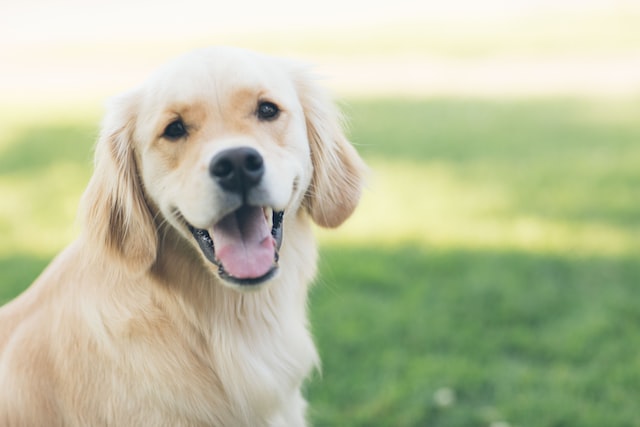We’re sure that you love everything about your dog, but we bet there’s just ONE thing you wish you could change…. The smell of their breath!
Even if you feed them a premium diet with organic meat from a silver platter, their breath will always have that special odour afterwards.
It’s part of the ownership experience but it is something many of us would love to avoid.
But, why do dogs have bad breath? Why do they suffer from it more than cats or other pets? How can you tackle bad breath in dogs?
Causes of bad breath in dogs
Bad breath in dogs is part of their character but it’s also a little unpleasant. As much as we may love it when they come up to us for slobbery kisses, we could all do without the smell!
So, what’s behind bad breath in dogs? Why are dogs more susceptible than other animals?
There are a number of causes, including:
They recently ate – The most common cause of bad breath in dogs is the food they eat. If they eat tinned food and ate recently, it will leave an odour. Tinned food will often contain sugars that react in the mouth of dogs just like some food does in humans. If your dog ate recently, this could be the cause of the odour.
Food stuck in teeth – Again, like humans, if your dog ate recently and has food stuck in their teeth, that can cause the smell. Dog’s teeth are different to ours with less room for food to get stuck, but it is possible. That’s why there are specific dental chews that can help get rid of stubborn food trapped in teeth.
Oral hygiene – Do you brush your dog’s teeth? Have you taken them to the vet lately for a checkup? Oral hygiene and periodontal disease can be a leading cause of bad breath in dogs. Plaque or tartar on the teeth can cause a bacterial buildup that can cause halitosis in dogs in the same way as humans. This can lead to complications, so isn’t something to ignore.
They ate something they shouldn’t – Dogs are scavengers by nature and never truly leave that behind. Even if you feed them regularly, dogs will naturally eat when they see food, even if they aren’t hungry. That can be from your bin, from the roadside, other dog’s waste and lots of unpleasant things (yuk!).
Kidney or liver disease – This is less common but can still cause bad breath in dogs. The kidney filters the body and so, when it isn’t working properly, bacteria can build up, causing a smell. The liver does the same but any issues will usually be accompanied by a yellowing of the eyes.
Diabetes – Also less common but still possible. Diabetes is becoming increasingly common in dogs and can cause a sickly sweet smell on the breath caused by ketones which are a side effect of diabetes. There are other symptoms of diabetes such as increased thirst, weight loss and others.
If in doubt, always check with your vet!
Tackling bad breath in dogs
Tackling bad breath in dogs will often be a process of elimination unless you take them to the vet for a diagnosis.
There are a few quick and easy things you can do to help your friend before visiting the vet.
Each will benefit their overall health, so we would recommend trying them first.
Studying their diet – If you feed your dog lots of treats or tinned food, consider changing to less processed treats and food. Excess sugar and nutrients can cause our best friend to have stinky breath and reducing this can reduce the smell.
Food rather than treats – If you tend to work late or long hours and treat your dog to make up for missed meals, use an automatic feeder to ensure your friend gets the nutrition they need instead of turning to treats. A balanced diet contributes to oral health, so can make a huge difference.
Clean your dog’s teeth – Vets recommend cleaning your dog’s teeth with a special toothbrush each week to remove plaque and tartar. We don’t actually know anyone who does this but if your dog’s breath stinks, perhaps it’s worth a try!
Use dental chews – There are a number of treats on the market with a variety of exotic shapes designed to be chewed. The idea is for the treat to reach between teeth to remove debris and to encourage the production of saliva. These can work well so are worth experimenting with.
Use chew toys and ‘pull’ – As if you needed an extra excuse to play with your dogs, it could actually help their teeth too! Encouraging your friend to chew bones, rubber toys, rope toys and playing pull can all help keep their teeth cleaner. It won’t fix the issue on its own, but as it involves play, it’s a win win for everyone!
Stop your dog bin raiding or eating things they shouldn’t – We know it’s tough to monitor your dog 24/7 but there are times when it’s necessary. If you have a bin raider in your family, or someone who likes to eat things they shouldn’t, train them out of it. Secure your bins and redirect them with a game if you see them heading towards something they might eat.
Bad breath in dogs
As you can see, there are many causes of bad breath in dogs. Some are down to lifestyle and some could be genuine health issues.
We would suggest tackling the easy causes first and monitoring for improvements. But, if you suspect there is more to it, or you think your pet could have health issues, always take them to the vet for a check-up.
